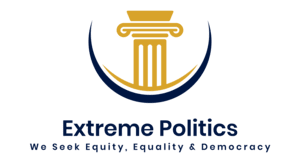Is the United States Agency for International Development (USAID) truly helping Africa, or does it have other motives? For decades, the U.S. has sent billions in aid to the continent, but is it making a real difference? Or, is it just a way for powerful nations to meddle in African affairs and exploit its resources?
Ambassador Arikana Chihombori-Quao, former African Union representative to the U.S., raises serious questions about the true impact of USAID. She suggests that the organization, and others like it, might not be what they seem. Let’s take a closer look at her arguments and the broader context of U.S. aid to Africa.
The Context: US Aid Cuts
The Trump administration made a big decision to cut U.S. aid to Africa. This meant taking away billions of dollars from programs that were supposed to help with things like:
- Humanitarian assistance
- Building infrastructure
- Providing medicine and food
For example, the Democratic Republic of Congo gets about $1.34 billion each year, and Ethiopia gets about $1.2 billion. Sudan gets nearly $800 million. Other countries like Nigeria, South Sudan, Kenya, Mozambique, and Uganda also get a lot of aid.
When these cuts started to happen, many people worried about the consequences. Groups like Action Against Hunger were treating malnourished children in places like Ethiopia. What would happen to them if the aid stopped?
A Different View: Is USAID Really Helping?
Ambassador Chihombori-Quao has a different way of looking at things. She believes that USAID and other similar organizations aren’t really there to rescue Africa. Instead, she says they often have hidden goals.
“They are actually wolves in sheep’s clothing. They are using that open access, sounding humanitarian, to constantly destabilize government.”
She claims that some USAID workers are more like “operatives.” According to her, their main job is to destabilize governments and create problems.
But has USAID really improved things like education and healthcare? As the ambassador said, “Show me one country that USAID was in and education improved. Show me what country where USAID was in and healthcare improved.”
What about PEPFAR, the big HIV/AIDS program? The ambassador questions whether even that program was entirely beneficial. She suggests that some of its practices might have been unethical, even harmful.
She also brings up concerns about agriculture. She argues that introducing genetically modified organisms (GMOs) could be destroying African farming practices.
What About the Good Intentions?
It’s important to acknowledge that many people in the U.S. think USAID is doing good work. Steve Clemons, who interviewed the ambassador, pointed out that he knows many USAID workers who genuinely want to help.
So, how do we balance these different viewpoints? Is it possible for an organization to have good intentions but still cause harm?

Other Countries, Other Agendas?
The U.S. isn’t the only country with aid programs in Africa. France, Britain, and China are also involved. Are they just trying to help, or do they have their own agendas?
Are all of these aid programs just power plays? Are these countries using aid to gain influence and access to resources?
Africa's Potential: Time for a Change?
Ambassador Chihombori-Quao believes that Africa doesn’t need aid. She points out that Africa helped Europe recover after World War II by providing resources.
She’s calling for African leaders to put their own countries first. “African leaders must also say Africa first,” she argues.
She gives the example of Niger, which took control of its uranium mining. By doing so, it significantly increased its revenue. Leaders like President Traoré of Burkina Faso, and leaders in Niger and Mali, are also standing up for their countries’ interests.
The US and Africa: What's the Relationship?
President Trump didn’t seem very interested in Africa. His focus was on cutting government spending. If Trump isn’t prioritizing Africa, should African leaders even bother trying to build a relationship with the U.S.?

Standing Together: Is African Unity Possible?
The ambassador believes it’s time for African nations to unite and speak with one voice. But, why is that so difficult?
She points to historical factors like colonization and the way people were taught to be subservient. She believes that many Africans have been brainwashed to not believe in themselves.
Rethinking International Institutions
The ambassador is also critical of organizations like the United Nations, the World Bank, and the International Monetary Fund (IMF). She says they were created to help developed nations, not the developing world.
A Turning Point?
Is this a time for Africa to seize the opportunity and forge a new path? With the U.S. pulling back, can African nations take control of their own destinies?
Conclusion
So, is USAID a force for good or a “wolf in sheep’s clothing” in Africa? Ambassador Chihombori-Quao’s perspective challenges the conventional wisdom about foreign aid. It forces us to ask tough questions about the true motives and impacts of these programs.
It’s a complex issue with no easy answers. What do you think? Share your thoughts in the comments below.

